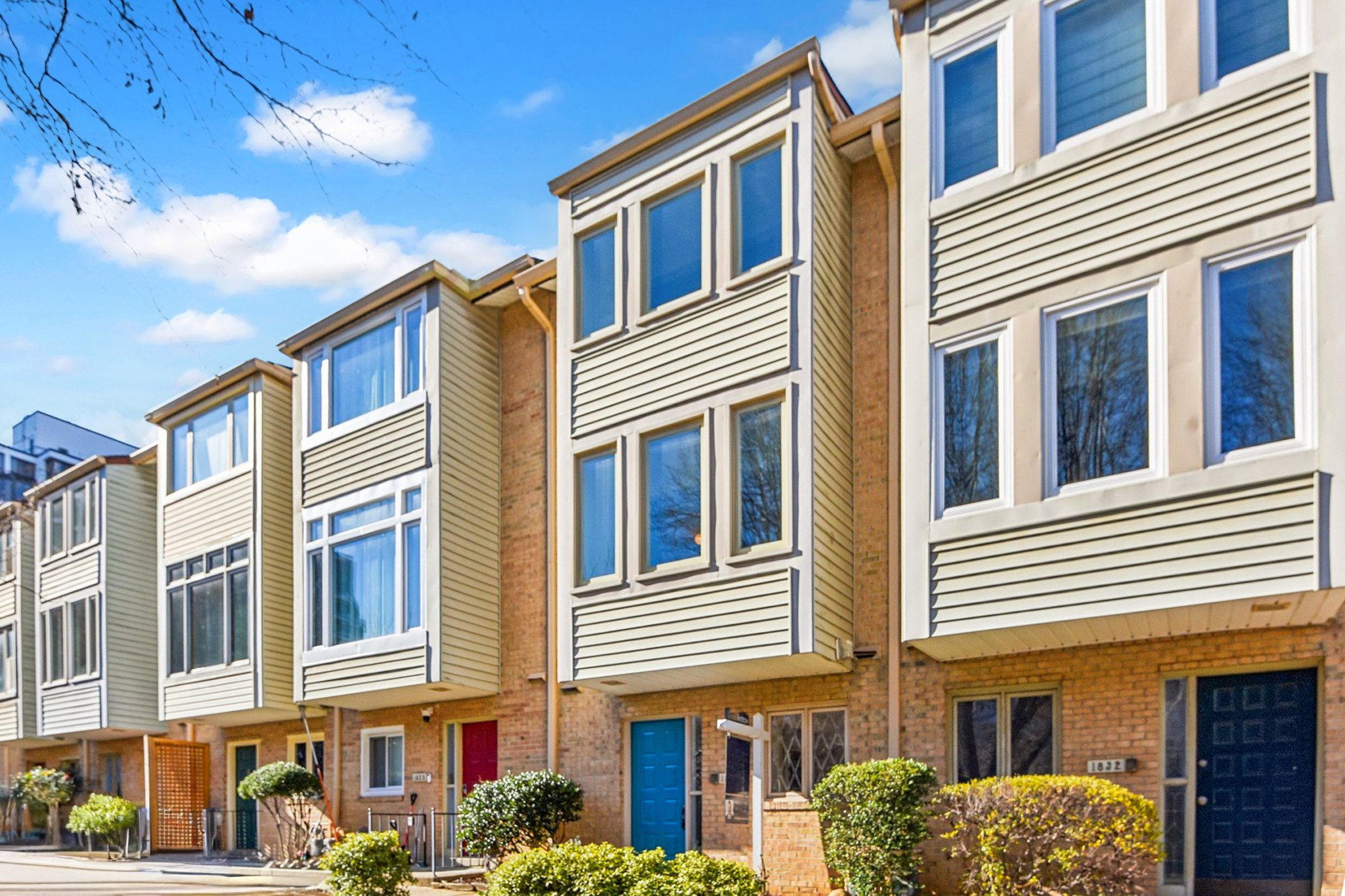If you haven’t taken a drive down Loudoun County Parkway in Ashburn, Virginia lately, it’s worth a short detour the next time you head toward Dulles. That stretch tells you everything you need to know about what the new digital and AI economy actually looks like. Mile after mile of enormous, windowless buildings stretching toward the horizon. The scale is staggering. What’s even more impressive—or depending on your point of view, more concerning—is the speed. These things are going up faster than townhomes, and almost all of them have appeared within the last decade. Many of the sites where they’re now being built were once promised as new neighborhoods, schools, or shopping centers — a switch that’s leaving a lot of buyers feeling misled.
Northern Virginia is home to roughly seventy percent of the world’s data centers and handles about the same share of the planet’s internet traffic. I’m not even sure of what that really means :) They’re owned by the biggest companies in the world including Google, Meta, & Amazon. Apparently, Ashburn sits on top of the fiber network and power grid that make the internet possible. Power rates in Northern Virginia are about twenty-five percent lower than the national average, which is something we all benefit from. The concern is that it won’t last forever. The appetite for data centers shows no sign of slowing down, and the demand they place on the grid is only getting heavier.
The New Gold Rush
The expansion is moving at a pace no one expected. Amazon just paid $700 million dollars for 270 acres in Bristow that had been slated for single-family homes. That’s $3.7 million per acre — the highest land price ever recorded in Northern Virginia and among the top three in the entire country. It’s a fascinating story. Stanley Martin, a national production builder, quietly assembled the land piece by piece from individual owners under the guise of a new housing development. The valuations were based on residential zoning. Almost immediately after closing on the final parcel, within days, they began the process of rezoning the area for data centers. Imagine being one of those sellers — thinking you’d done well (Stanley Martin paid $51 Million Total) — and then watching the buyer flip it for over ten times that amount.
And just this morning, news broke that 97 acres in Leesburg, purchased in 2021 for $57 million, sold for $615 million dollars. That’s roughly $6 million per acre — an astonishing figure. Every builder, land speculator, and raw land owner in the region is paying attention. The pattern is clear: assemble land, even those zoned for residential, rezone it for data centers, and sell it for record-setting profits. It’s the new gold rush, and it’s happening right in our backyard.
In Gainesville, another developer just paid one hundred sixty million dollars for the Merrifield Garden Center property. The appetite for these sites is insatiable, and the ripple effects are already reaching the housing market.
Willowsford: A Cautionary Tale
Take Willowsford, one of Loudoun’s most sought-after communities. Residents there are already feeling it. New data center proposals are circling the edges of the community near Evergreen Mills Road and Arcola Boulevard. Areas like The Grange and The Grove are closest to the new sites and buyers are noticing. Homeowners are watching farmland turn into potential three-hundred-megawatt campuses and transmission corridors. Some homes now back to industrial-zoned parcels instead of preserved green space. And you can see it in buyer behavior: hesitation, slower sales, and a few quiet price adjustments.
If you think this only happens out in Bristow or Gainesville, think again. Data centers are now creeping into Fairfax County. One of the largest and tallest in the region is rising just off Route 50 in Chantilly, less than two hundred feet from the Pleasant Valley neighborhood. Amazon has plans for another in Springfield on Loisdale Road, and there are new proposals in Herndon and Reston along the Toll Road corridor. These aren’t tucked away in remote industrial parks. I was surprised to learn that right next to my kids’ soccer practice in Tysons Corner, there are several data centers either operating or under development, some less than two hundred feet from residential neighborhoods. They’re being built beside townhomes, playgrounds, and cul-de-sacs. Unfortunately, many of the families who moved to these areas did so for the open land and the promise of more homes, schools, and shopping centers, not the glow of twenty-four-hour cooling towers.
Equity at Risk
The truth is, no one really knows yet how this will affect home values, but perception alone can move markets. Once a community becomes known as “the one near the data centers,” demand shifts and buyers get spooked. Even the rumor of new infrastructure, constant noise, diesel generators, or all-night lighting can change how people see a neighborhood. Lately, even vacant farmland nearby is enough to make buyers hesitate. Their worries aren’t only financial. Many are genuinely concerned about the possible health consequences — the low-frequency vibration and hum that travels for miles, the diesel exhaust from backup generators, the air quality issues from constant truck traffic, and the impact on local water tables. Whether those risks are fully understood or not, the perception of health and environmental harm is starting to shape buyer psychology in a way that’s hard to ignore.
Making matters worse, Congress’s “Big Beautiful Bill” earlier this year included language designed to fast track data center construction. For the next decade, local governments can’t introduce new zoning restrictions that would slow these projects down. So if you think county boards or HOAs can pump the brakes, they can’t, at least not easily.
How to Protect Yourself
Before you buy, look beyond the house itself. Pull the county zoning map and see what’s approved, pending, or under review nearby. Check Dominion Energy’s website for proposed transmission or substation projects in the area. Be skeptical of any vacant land, industrial space, or even builder promises. Even farmland or wooded acreage that looks harmless today can change quickly once a data center developer takes interest.
In the end, the best protection is awareness. Northern Virginia’s growth is inevitable, but surprises don’t have to be. A little due diligence before you buy can save you from waking up one morning to find a 300-megawatt neighbor lighting up the night sky.

Khalil El-Ghoul
Khalil El-Ghoul is a seasoned real estate broker actively helping sellers and buyers throughout Northern Virginia, DC, and Maryland. Known for his no-nonsense approach, Khalil combines expert market insight with honest, objective advice to help buyers and sellers navigate every type of market—from calm to chaotic. If you’re looking for clarity, strategy, and a trusted partner in real estate, he’s the one to call. 571-235-4821, khalil@glasshousere.com





.jpg)
